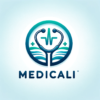Precision Medicine Unveiled: Unlocking the Power of Targeted Drug Therapies
In recent years, remarkable advancements in healthcare and medical research have led to the emergence of precision medicine. This groundbreaking approach to treatment aims to provide more personalized and effective healthcare by tailoring medical interventions to individual patients. One of the most promising aspects of precision medicine is the development of targeted drug therapies, which specifically target the unique characteristics of a patient’s disease.
Traditionally, patients with similar conditions would be treated with the same medications, regardless of differences in their genetic makeup or disease progression. This one-size-fits-all approach often resulted in suboptimal outcomes and sometimes even exacerbated the patients’ conditions. However, with the advent of precision medicine, doctors and researchers can now identify genetic variations and other molecular markers that contribute to the development of specific diseases. By analyzing these factors, healthcare providers can select the most appropriate medication or therapy for each individual patient, significantly improving their chances of successful treatment.
One of the shining examples of targeted drug therapy is in the field of oncology. Cancer, a complex and heterogeneous disease, requires a nuanced approach to treatment. With the traditional methods, chemotherapy would be administered without considering the specific genetic mutations driving the tumor, leading to varying levels of success. However, with precision medicine, oncologists can now identify the genetic mutations present in a patient’s tumor and match them with targeted therapies designed to inhibit the growth and spread of those specific cancer cells. This approach has revolutionized cancer treatment, leading to improved outcomes and increased survival rates for patients worldwide.
Beyond cancer, targeted drug therapies are being explored for a wide range of diseases, including neurological disorders, autoimmune conditions, and cardiovascular diseases. By identifying specific molecular targets, researchers are developing medications that can precisely and effectively address the root causes of these diseases. Through precision medicine, patients with multiple sclerosis, for example, can benefit from treatments tailored to their specific immune system abnormalities, reducing the risk of relapses and improving their quality of life.
Moreover, precision medicine is not limited to pharmacological interventions alone. It also encompasses gene therapies, where genetic material is introduced or modified to correct the underlying cause of a disease. This revolutionary approach has shown promising results in treating rare genetic disorders like cystic fibrosis and muscular dystrophy, offering hope for patients who were previously left without effective treatment options.
However, despite the significant progress made in precision medicine, there are challenges that need to be addressed. First and foremost, the accessibility and affordability of targeted drug therapies must be considered. These innovative treatments can be quite expensive and may not be accessible to all patients, limiting the potential benefits of precision medicine. Additionally, there are ongoing ethical debates surrounding the use of genetic and personal data in the context of precision medicine. Striking the right balance between advancing medical knowledge while respecting patient privacy and autonomy is crucial for the successful implementation of precision medicine.
In conclusion, precision medicine holds tremendous promise for revolutionizing healthcare by unlocking the power of targeted drug therapies. This approach moves away from the traditional one-size-fits-all approach to treatment and focuses on tailoring interventions to individual patients. Through precision medicine, doctors can optimize treatment plans, leading to improved outcomes and better quality of life for patients. While challenges remain, the potential benefits of precision medicine in terms of patient care and medical advancements make it an exciting field that continues to evolve and bring hope to patients around the world.

